-

How to introduce ‘keeping each other safe’ at meetings
—
For all the advice you receive on minimising risks to your group and its members, eventually you have to find a way to put this into practice. Many campaigners are understandably worried that talking about police surveillance will frighten new people way from active participation, so how do you introduce the topic? Public events Any…
-
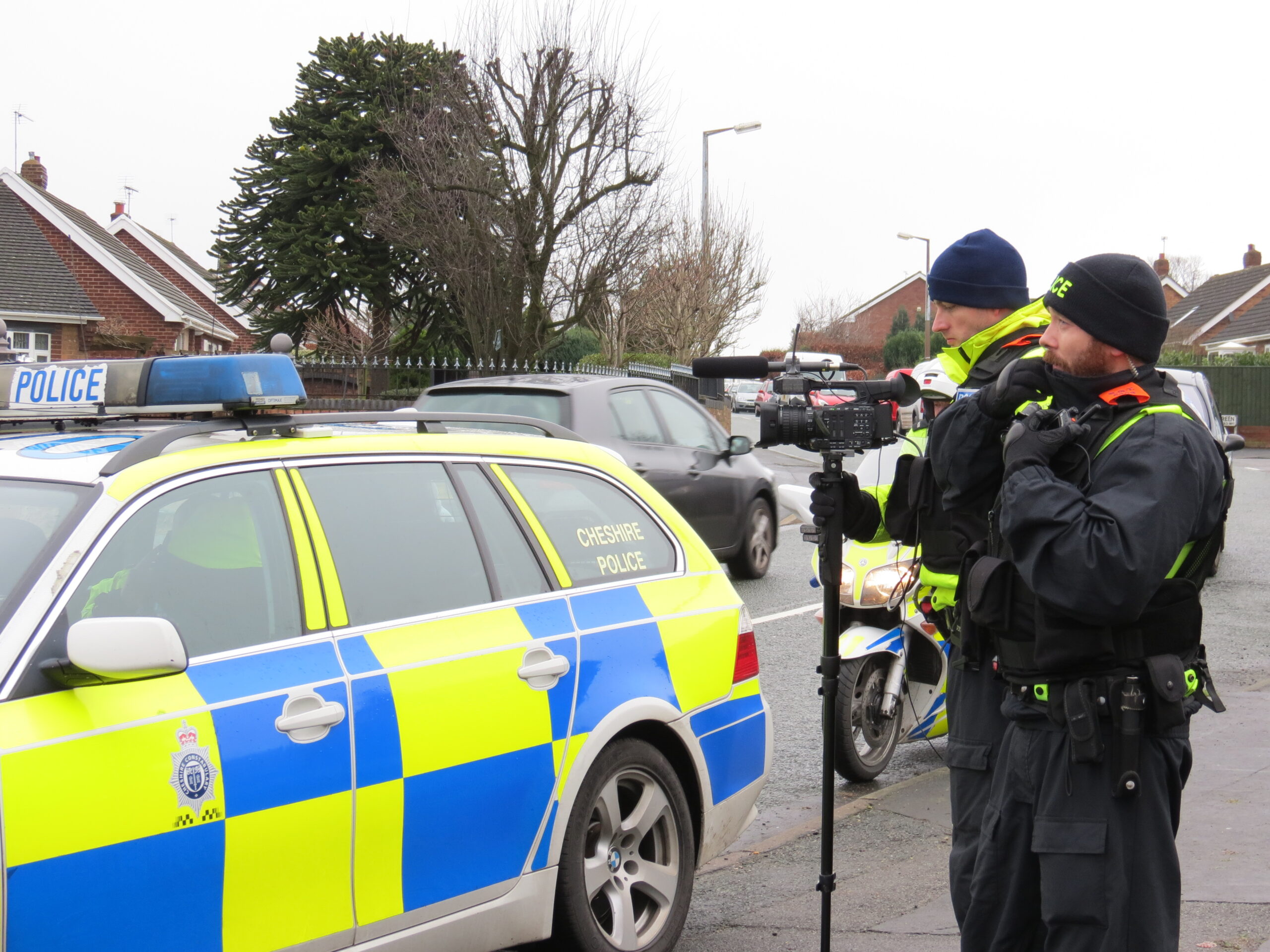
Dealing with police surveillance at public gatherings
—
in OrganisingFinding a venue Finding an appropriate and affordable venue is often the most difficult part of organising any public event. Unfortunately, this can be even harder if the meeting or conference is related to protest or activism. Venue managers may become nervous of their venue becoming the focus of conflict, or that they may attract…
-
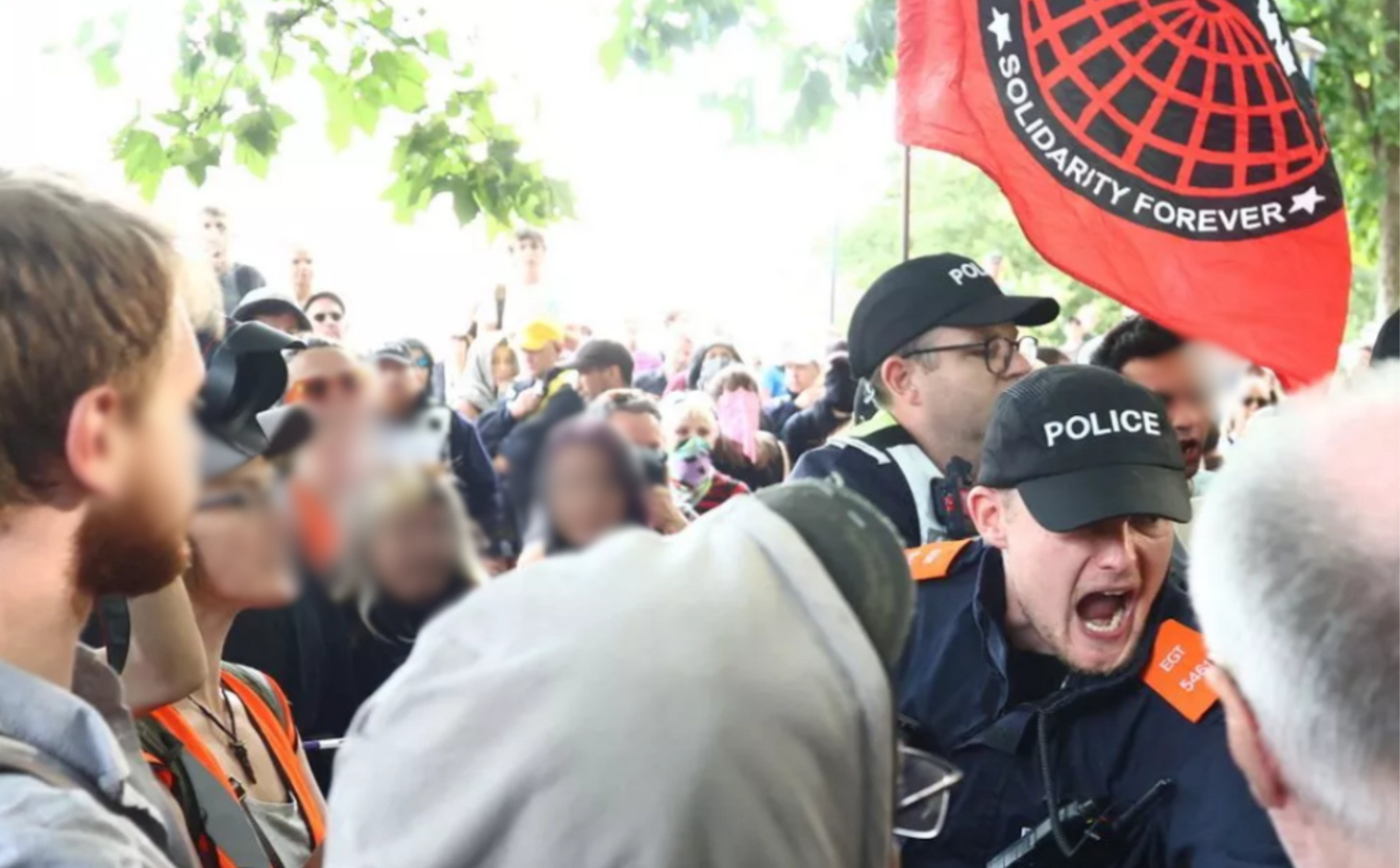
Staying safer during anti-fascist organising
It’s incredibly important to protect your identity and use secure methods of organising when you’re taking anti-fascist action, as you face risks not just from the police but from far-right groups. Far-right groups sometimes “dox” anti-fasicst campaigners, publishing people’s photos, personal details and information online. Keeping your identity secure and wearing a mask to protests…
-
More secure alternative to Google Docs: CryptPad
—
in OrganisingDo you need to share meeting minutes, strategies and plans somewhere that your group can edit them easily together – but you’re worried about sharing sensitive information online? Many protest groups are using Google Docs to collaborate, but this can make it easy for police to access sensitive information. So what can you do instead?…
-
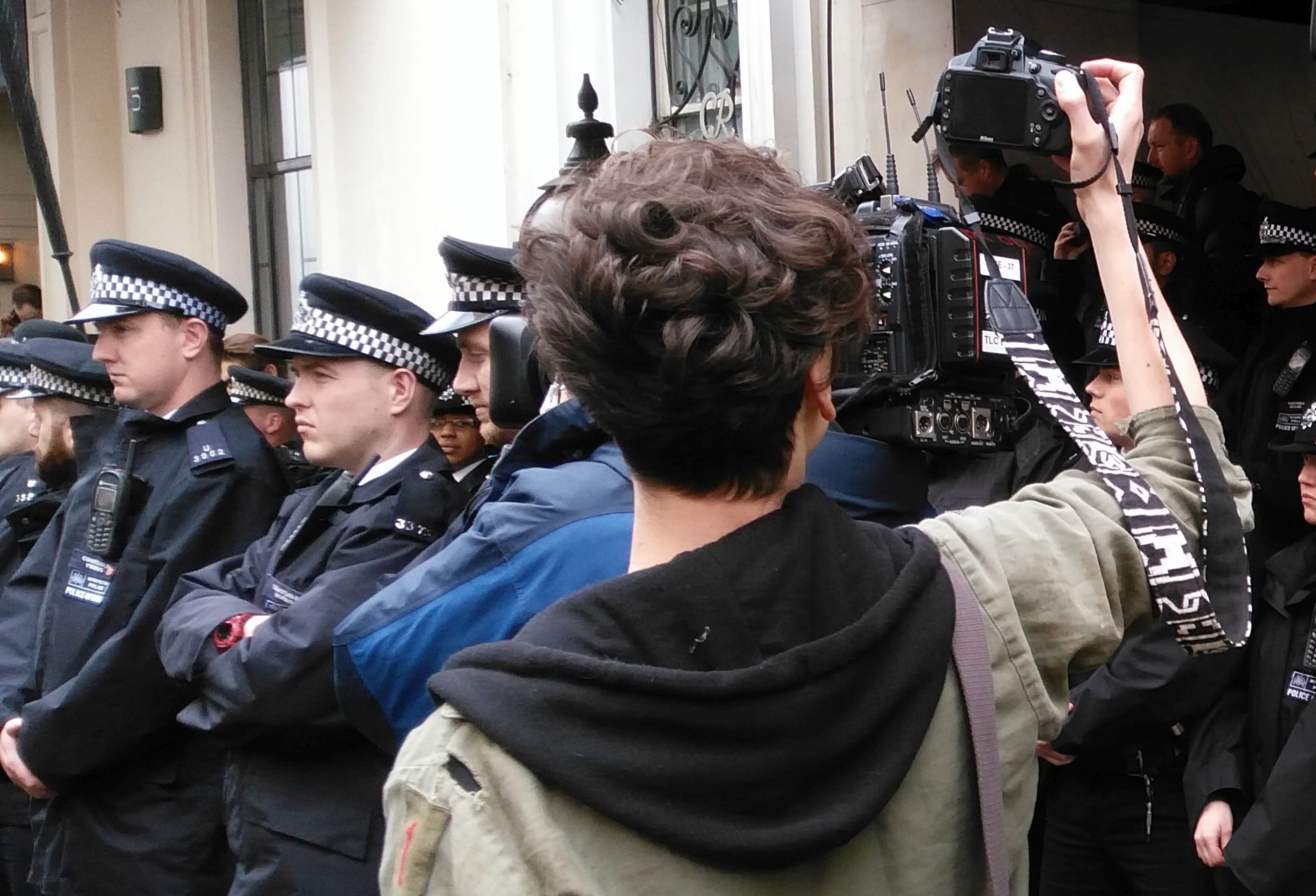
Filming the police
—
in ProtestsWhy stop and film? Ordinary people stopping and filming the police can mean that officers behave differently than they would if no-one was watching and recording their actions. This might make the experience for the person who has been stopped or arrested feel far less intimidating or threatening. Can I legally film the police? The…
-

Dealing with tabloid journalists
—
in OrganisingThe hallmark of sensationalist tabloid reporting is generating fear and outrage, invariably in defence of deeply partisan, reactionary politics. Campaigners who use direct action and civil disobedience tactics are often seen as a target for this kind of “journalism”. In particular, reporters have turned up at meetings or attended online discussions looking for gossip and…
-

Use a Virtual Private Network (VPN) for online privacy
—
in OrganisingWhen and why should you use a VPN When you don’t use a VPN your Internet Service Provider (ISP the company or institution providing your connection) can see the links you are accessing, though they can’t see anything you input into those sites if its a https link. A lot of information and data is…
-
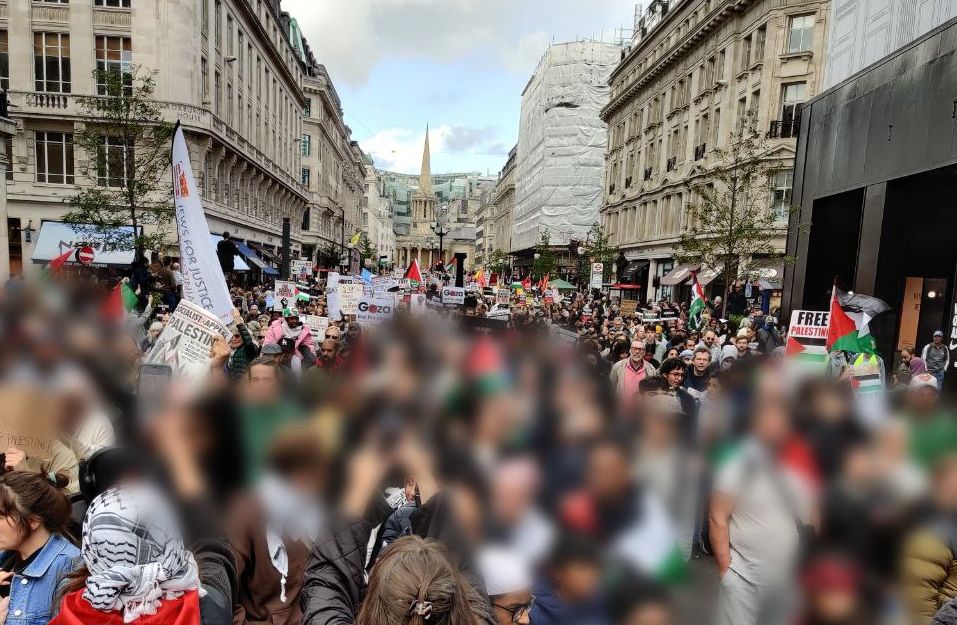
Blurring faces in videos
—
in ProtestsVideo shared online is a significant source of intelligence for the police and so – if you consider the risk warrants protecting someone’s identity – you may want to blur faces in a video clip before sharing it on social media. There are a number of tools that offer this. These resources come and go,…
-
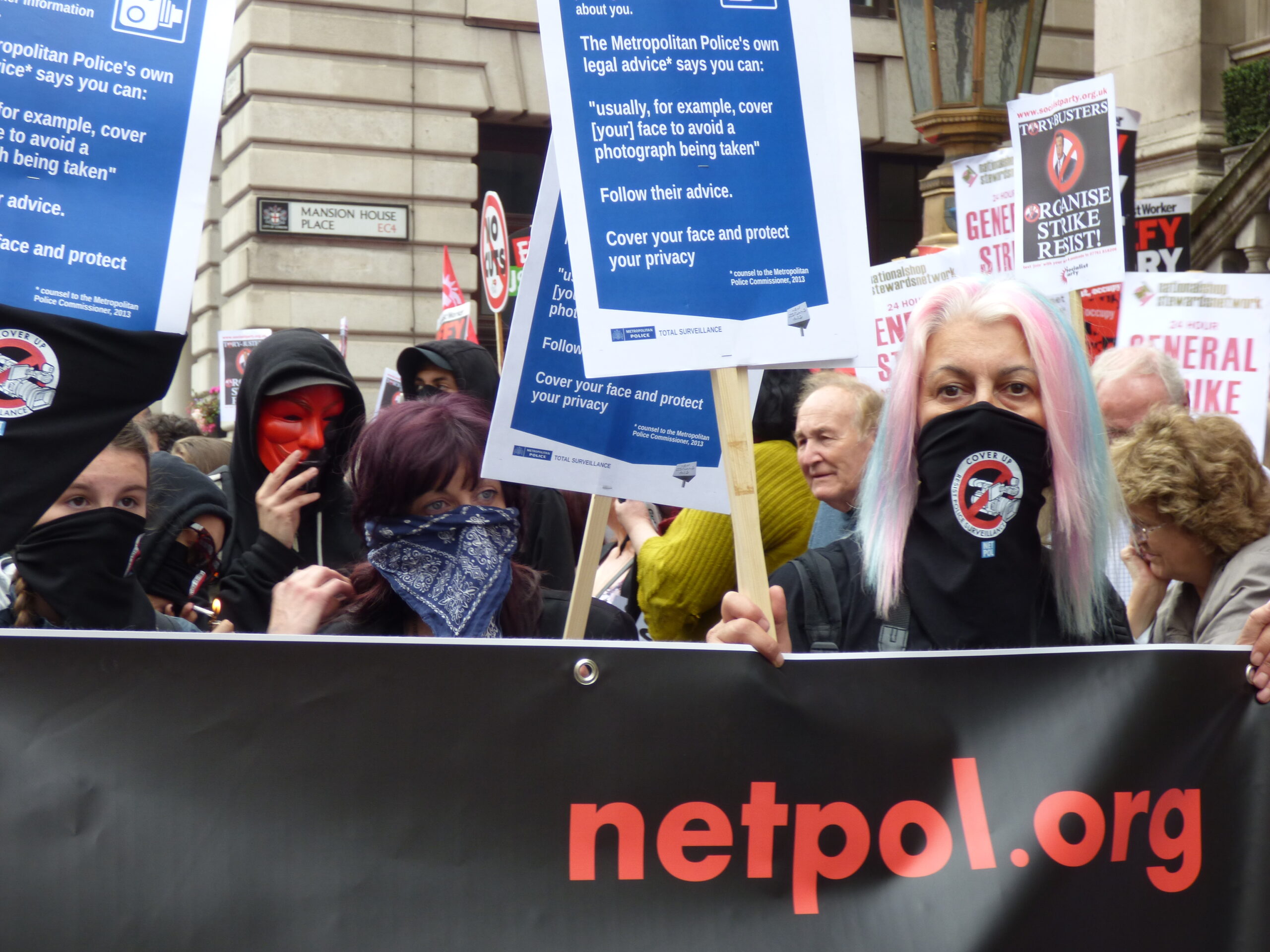
Reasons to wear a mask at a protest
—
in ProtestsWear a mask to protest your health and others. The coronavirus pandemic is not over, 2 million people in the UK are now experiencing long COVID and tens of thousands of people who have a weakened immune system remain clinically vulnerable. Everyone wearing a mask is a way of offering safety and solidarity to people…
-

Help! The police have taken my phone
—
in ProtestsIf you are arrested, the police can seize your phone as evidence. You may not get your device back in a workable condition or at all if police seize it, which is why we would always advise you NOT to carry your phone if you think you may be arrested. Police do not have the…
